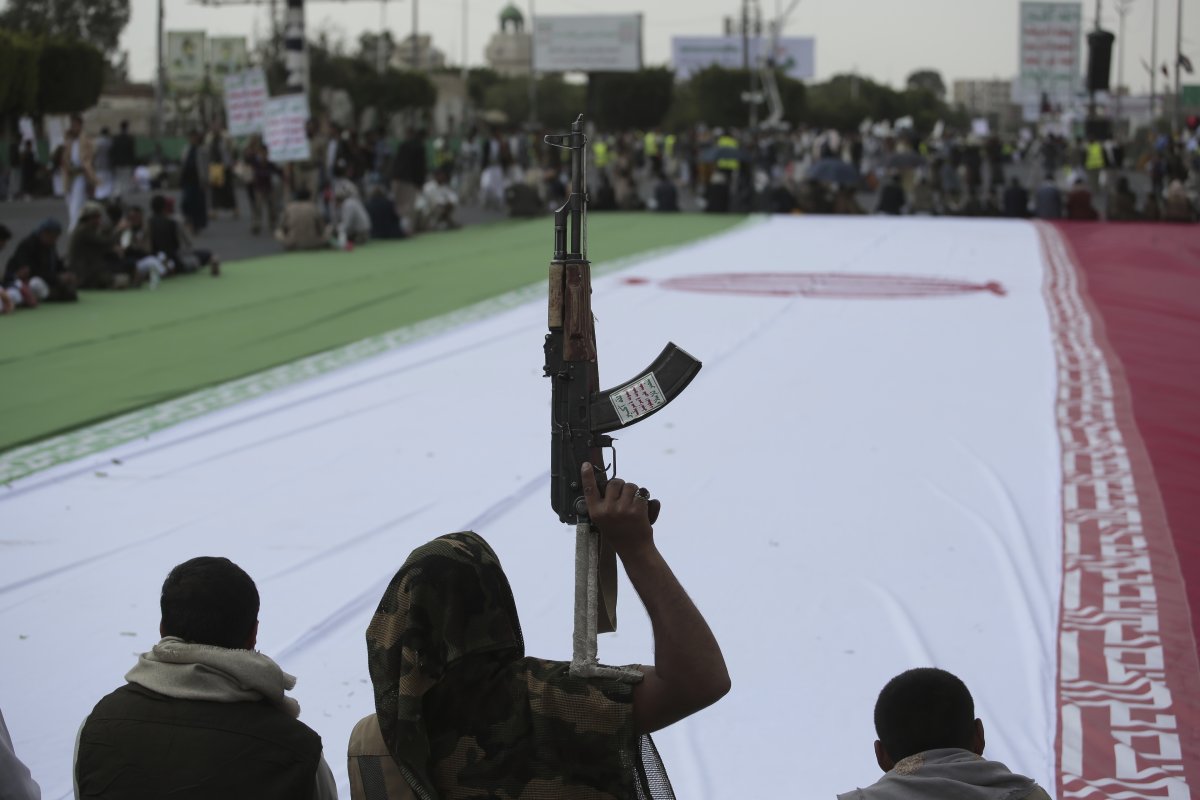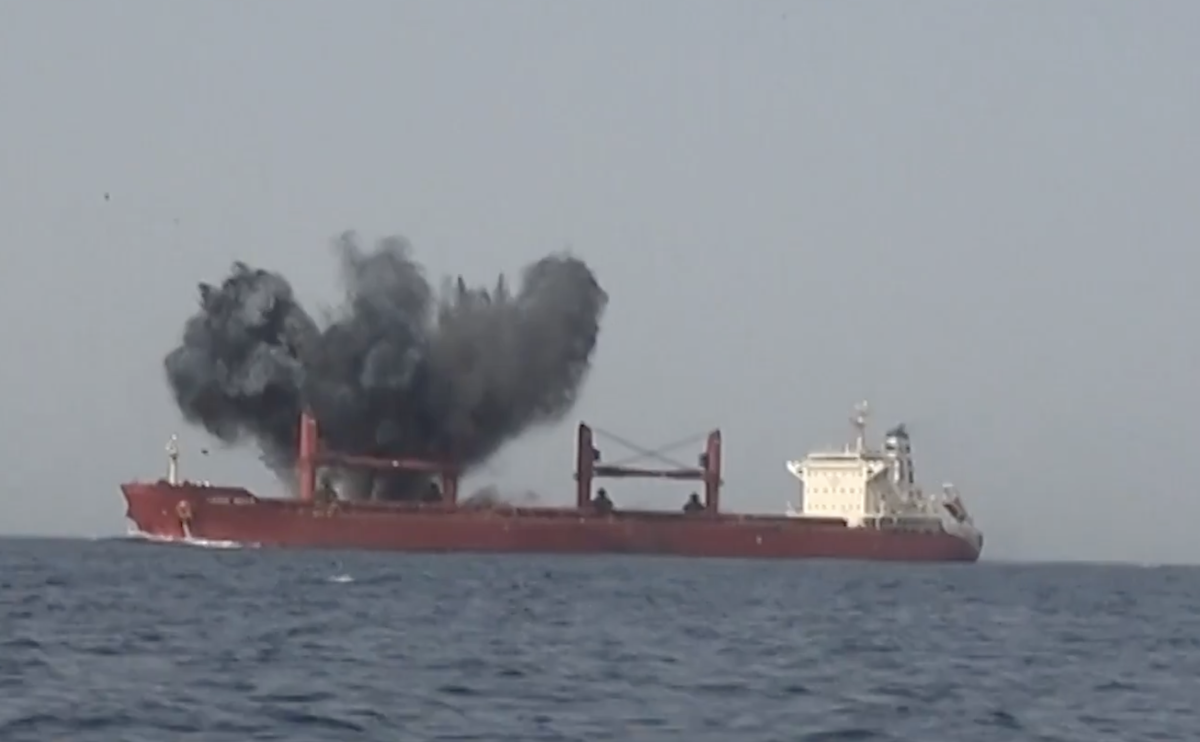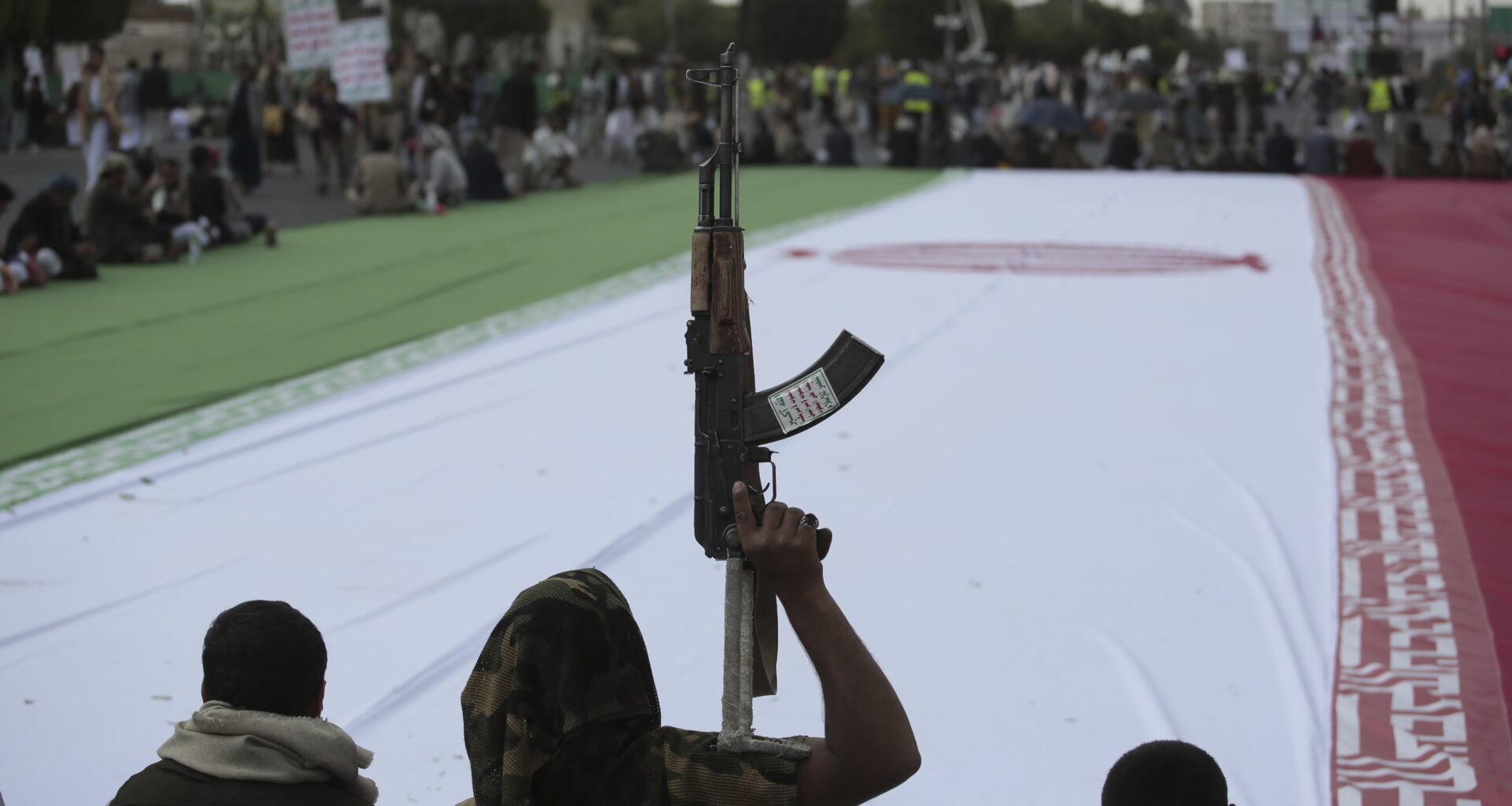Iran has denied U.S. accusations that it is fueling the war in Yemen through arms transfers to Houthi rebels, following what U.S. officials called the largest-ever seizure of Iranian-made weapons bound for the group. Iran’s foreign ministry dismissed the claim as “baseless.”
Newsweek has reached out the Pentagon for comment.
Why It Matters
The allegation, announced by U.S. Central Command (CENTCOM), comes amid escalating Red Sea tensions after Houthi forces resumed deadly attacks on commercial shipping in what they say is support for Palestinians in Gaza.
The seized weapons shipment and renewed Houthi maritime attacks have deepened global concerns over Red Sea security, threatening vital trade routes just weeks after open conflict between Israel and Iran. As tensions spike, U.S. officials warn of growing threats to freedom of navigation, commercial flow, and regional stability—while the standoff sharpens Washington’s broader push to isolate Tehran and curb its network of proxy forces across the Middle East.

Houthi supporters surround a giant Iranian flag during an anti-U.S. and anti-Israel weekly rally in Sanaa, Yemen, Friday, June 20, 2025. (AP Photo/
Houthi supporters surround a giant Iranian flag during an anti-U.S. and anti-Israel weekly rally in Sanaa, Yemen, Friday, June 20, 2025. (AP Photo/
Osamah Abdulrahman/AP Photo
What To Know
CENTCOM said on Wednesday that Yemen’s National Resistance Forces (NRF), an anti-Houthi militia led by General Tareq Saleh, seized more than 750 tons of advanced Iranian weaponry intended for the Houthis. The shipment included anti-ship and anti-aircraft missiles, warheads, hundreds of drone engines, radar systems, air defense components, and encrypted communications gear. Manuals in Farsi and other markings indicated the weapons were produced by a company affiliated with Iran’s Ministry of Defense. CENTCOM described the operation as the most significant interdiction of Iranian arms since the outbreak of the Gaza war in October 2023.
On Friday, CENTCOM shared footage of what they said were Yemen’s NRF intercepting a vessel smuggling Iranian weapons to the Houthis.
Yemen’s National Resistance Forces released new footage of the interception of a vessel smuggling Iranian weapons to the Houthis in the Red Sea. pic.twitter.com/8DbzH70sFT
— U.S. Central Command (@CENTCOM) July 17, 2025
Tehran Rejects Blame
Tehran rejected the accusation. Foreign Ministry spokesman Esmail Baqaei called the claim “baseless and part of a media campaign against Iran,” accusing the U.S. of seeking to deflect attention from its own role in regional instability. He did not address the specifics of the intercepted shipment or provide alternative explanations for the weapons’ origin. Iran has consistently denied arming the Houthis, despite repeated claims by U.S. and UN officials over the years linking Tehran to advanced weapons used by the rebel group.
Houthi Attacks
The seizure comes amid renewed Houthi attacks on commercial vessels in the Red Sea. On July 6, the Magic Seas, a Greek owned bulk carrier, was hit by missiles and an explosive drone boat, forcing the crew to abandon ship. In the same week, the Eternity C, also Greek-owned, was attacked. Both vessels were severely damaged and sank.
These are the deadliest maritime attacks since the Houthis resumed hostilities after a June 24 ceasefire between Israel and Iran. The group says the attacks show solidarity with Palestinians in Gaza and vows to keep disrupting Red Sea shipping until Israeli operations end in the war against Hamas since the October 7, 2023 attacks on Israel.

Screengrab shows Houthi Attack on Magic Seas vessel in the Red Sea July 6, 2025.
Screengrab shows Houthi Attack on Magic Seas vessel in the Red Sea July 6, 2025.
Ansar Allah Media office
What People Are Saying
Esmail Baqaei, Iranian Foreign Ministry spokesman: “Baseless and part of a media campaign against Iran.”
General Michael Erik Kurilla, CENTCOM commander: “The interdiction of this massive Iranian shipment shows that Iran remains the most destabilizing actor in the region. Limiting the free flow of Iranian support to the Houthis is critical to regional security, stability, and freedom of navigation.”
What Happens Next
The U.S. is expected to step up its coordination with Yemeni and European partners to halt future Iranian arms transfers and strengthen naval defenses amid growing fears of wider conflict in one of the world’s busiest shipping corridors.
